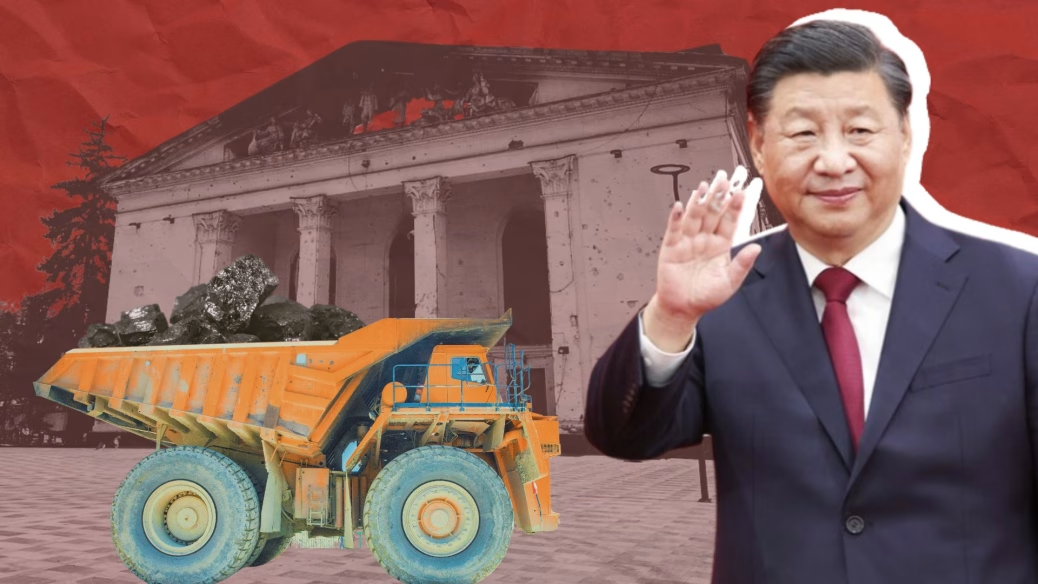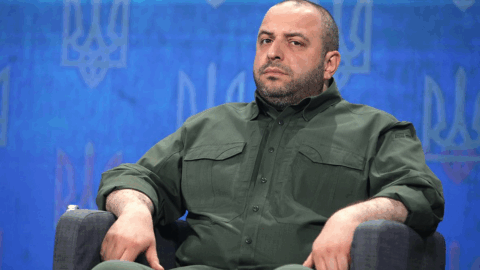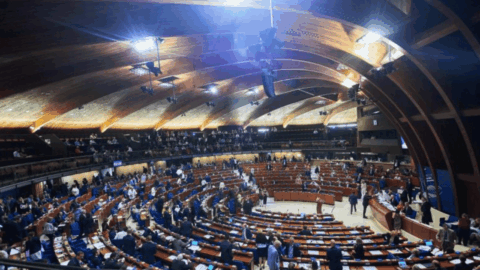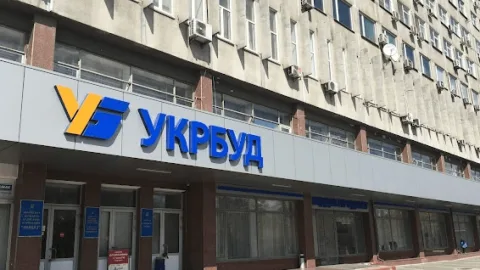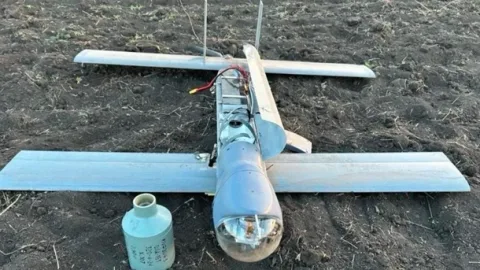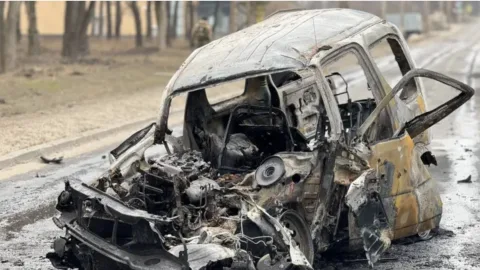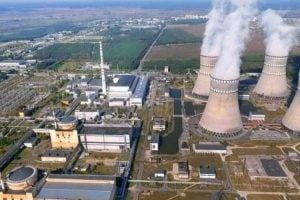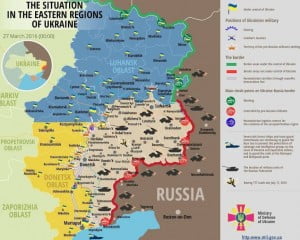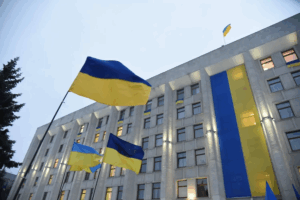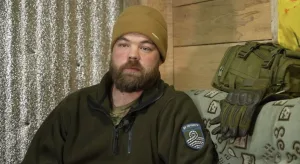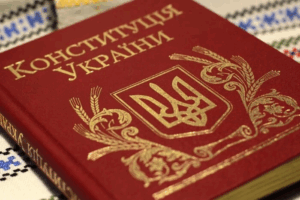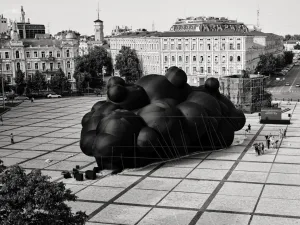China invests in Ukraine’s occupied territories. An investigation by Realna Gazeta.
Chinese companies are establishing factories from the ground up for the extraction and production of building materials in the occupied areas of Donetsk Oblast. These materials are aiding Russia in its rapid reconstruction of Mariupol—a city it destroyed—and in paving roads for military equipment en route to the Ukrainian-Russian front.
While China portrays itself as a peacekeeper and mediator, wary of Western sanctions, it is actively investing in Russian projects within Ukraine’s occupied territories. Thus far, the international community has fully addressed this aspect of China’s policy.
In its investigation, Realna Gazeta uncovered how Chinese businesses operate in the occupied regions and who is behind these ventures.
By Andrii Dikhtiarenko
“Russia has arrived?”
In early spring 2022, the quiet village of Mirne in the Volnovakha district of Donetsk Oblast fell under Russian occupation. (MAP) Meanwhile, to the south, the Russian military continued its brutal destruction of Mariupol, a city of half a million residents. Amid this devastation, a delegation from the leadership of the puppet “Donetsk People’s Republic” (DPR) made an unexpected visit to Mirne. Their destination was The Karan quarry, an abandoned and partially flooded site where crushed stone had been extracted for construction until its closure in 2008. To the surprise of local residents, the ‘DPR’ delegation revealed that certain investors were highly interested in reviving the quarry.
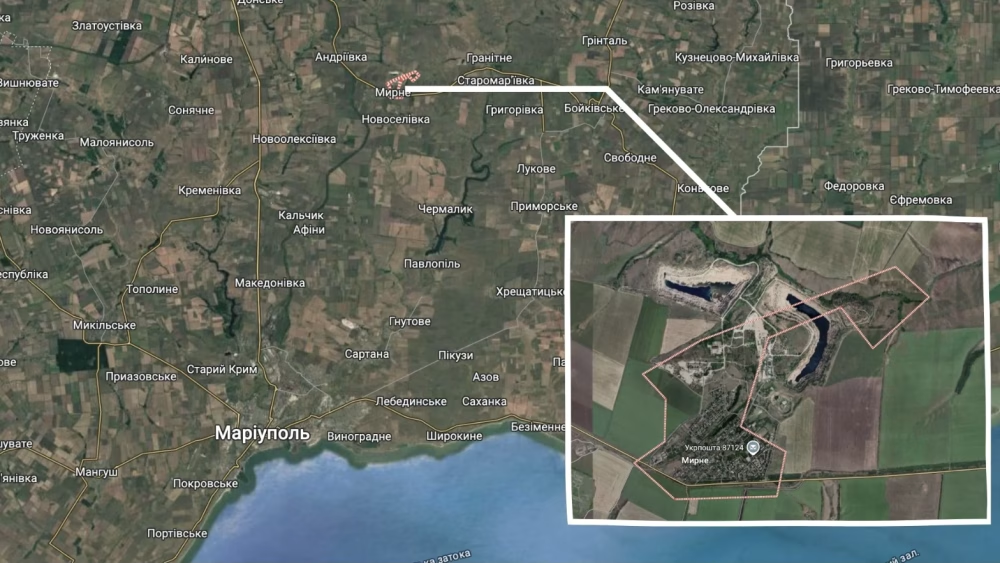
In just a few months, preparatory work begins at the quarry. By August 2022, electricity was installed in the building of the abandoned factory, new machinery and equipment were brought in, and crushed stone began to be actively mined right away, local residents told Realna Gazeta. In October 2022, the Karan quarry and crushed stone processing plant were officially opened. By May 2023, 243 people were already working at the Karan quarry LLC, the vehicle fleet included 40 units of modern special equipment, and the plant’s capacity allowed the production of about 250 tons per day of commercial fractional crushed stone, said the deputy director of the quarry, Maxim Efimenko, in an interview with correspondents of the Oplot propaganda channel.
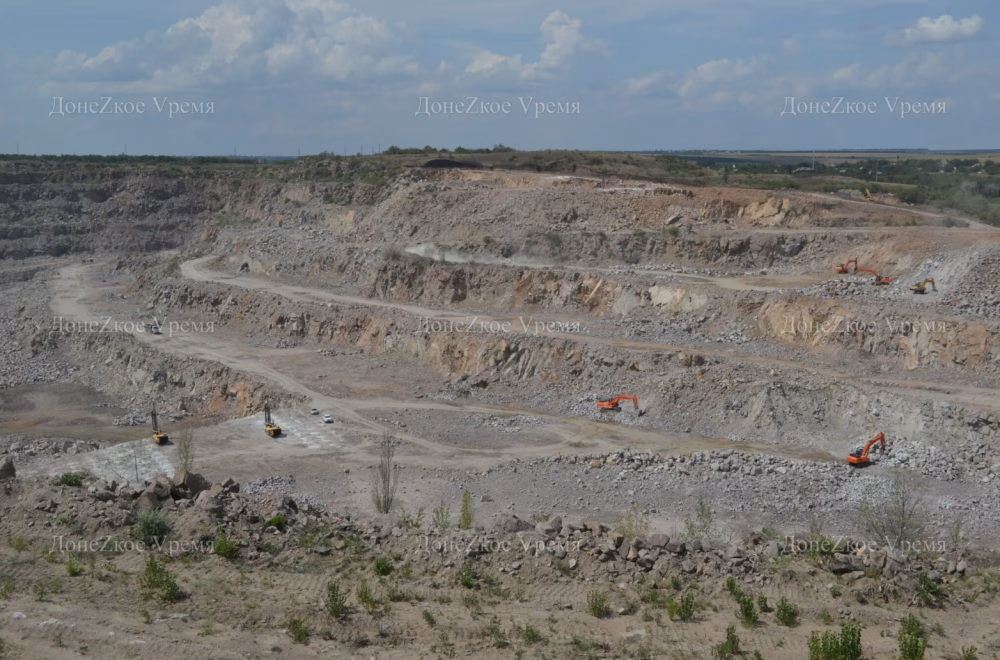
“Huge excavators operate around the clock, extracting granite that is urgently needed for the restoration of the ‘republic’!” – reported Donetsk-based media outlets, showcasing brand-new Chinese excavators and trucks in their coverage.
On May 8, 2023, the eve of Victory Day celebrations, the village received a high-profile visit from Denis Pushilin, the “Acting Head of the DPR.” Addressing the locals during a ceremonial event, Pushilin declared, “The launch of this key enterprise is clear evidence that Russia has arrived! Russia has returned!”. However, Pushilin’s statement was misleading. The revival of the Karan quarry was not exactly the work of Russia.
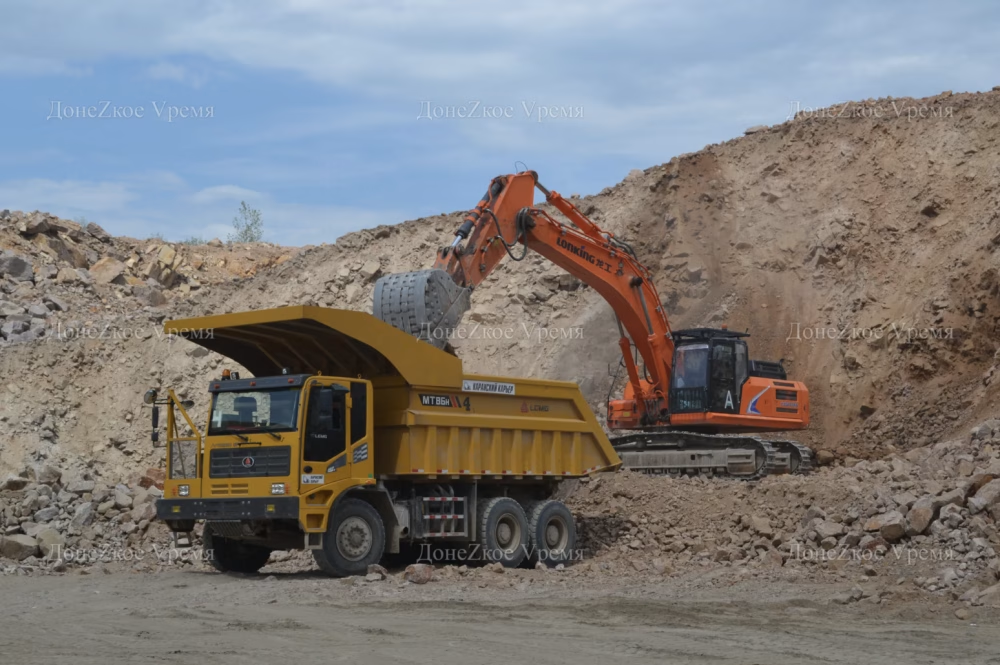
Mysterious investors
In February 2024, the leader of the self-proclaimed “DPR” returned to Mirne to open a brand-new concrete factory at the same quarry. Expressing gratitude to the enigmatic investors who had financed a second industrial facility in the occupied territory of Ukraine, he hinted at support from foreign nations. “We are already building cooperation with countries that share our understanding of the current processes, where everything operates for the greater good,” Pushilin remarked, offering a vague explanation for his success in attracting investments to Mirne. He proudly added that Karan Quarry LLC, just 18 months after its relaunch, had become the largest taxpayer in the occupied Donetsk region’s treasury.
Interestingly, it was the desire of the “DPR” officials to showcase their international connections that allowed Realna Gazeta to uncover the true source of investments behind this seemingly lucrative construction venture. We found that in November 2023, the so-called “DPR Prime Minister,” Yevgeny Solntsev, announced that Karan Quarry had signed cooperation agreements with two Chinese companies.
“Karan Quarry LLC has entered into agreements with two Chinese firms—Amma Construction Machinery Co. Ltd., a rock-crushing equipment manufacturer, and Zhongxin Heavy Industry Machinery Co. Ltd., a producer of crushing and screening equipment,” Solntsev wrote on his Telegram channel. He also shared a photo of himself posing with the Chinese delegation, prominently displaying the national flag of the People’s Republic of China.
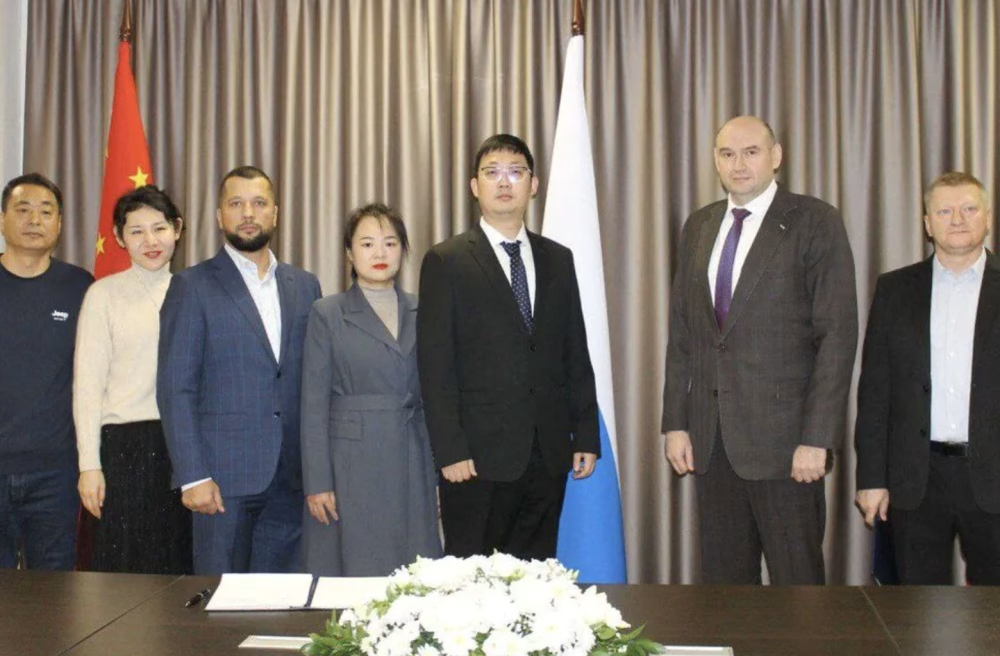
“The agreements include joint projects for the production and processing of building materials, the construction of mining and processing facilities, the establishment of crushing and sorting plants, as well as information and consulting support for equipment selection and supply to the ‘DPR.’,” stated the official from the occupation administration of Donetsk Oblast.
Realna Gazeta’s sources in the occupied Donetsk say that Chinese investments had been part of the Karan Quarry project from the very beginning of its occupation back in 2022, formalising cooperation only a year later. Behind closed doors, members of the “DPR” administration reportedly call the enterprise not “Karan” but “Chinese quarry”.
A construction project in the Chinese style
Two new factories—a concrete production plant and a crushing facility—were constructed in record time in 2024 as part of a joint project with Chinese companies at the Karan quarry. “The company’s products are used for road construction and concrete production not only in our ‘DPR,’ but also in the ‘LPR,’ Kherson, and Zaporizhzhia regions!” proclaimed local television during coverage of the facilities’ launch.
We have reviewed dozens of publications dedicated to the work of this project in Russian and Donetsk media. Russian propaganda portrays the industrial complex built around the Karan quarry as the centrepiece of a so-called “large construction project” initiated by the Kremlin in the occupied territories of Ukraine. These reports celebrate the quarry’s ability to supply building materials for the reconstruction of roads and residential buildings. What they omit, however, is that these roads and buildings were previously destroyed by the Russian military—and that the factories around the Karan quarry were constructed by Chinese companies.
Local media reports do indicate where the plant’s products are being sent – towards Mariupol. Crushed stone, granite, and concrete are transported for projects, including asphalt paving on strategically significant highways such as Donetsk–Mariupol, Telmanove–Volnovakha, Amvrosiivka–Mariupol, and other routes in the Azov region. These materials are also used for construction projects within Mariupol itself, a key logistical hub for Russia in the region.
According to information obtained by Realna Gazeta from residents of Mirne, the Karan quarry facilities operated around the clock in 2024 to meet the occupiers’ insatiable construction demands. In 2022, around 100 thousand, according to different sources, people were killed in Mariupol by the Russian army, with the majority buried in mass graves in their backyards. Allegedly, the asphalt concrete produced in the area was used to pave over these mass graves, which contained the bodies of Ukrainian residents of Mariupol—victims of atrocities committed by the Russian army.
In the autumn of 2023, a delegation of Chinese “bloggers” (as Russian and Ukrainian media referred to them) visited the “large construction site” in Mariupol. Among the delegation was popular Chinese singer Wang Fang, who performed the song Katyusha on the ruins of the Mariupol Drama Theatre. Katyusha is a famous Soviet song from the Second World War, which became a symbol of the Soviet-Chinese friendship.
This scene carried chilling symbolism. On March 16, 2022, a Russian military plane dropped an air bomb on the theatre, where civilians—many of them children—had sought refuge in its bomb shelter. Even a massive sign reading CHILDREN painted outside the building failed to deter this war crime. Estimates of the death toll range from 300 to 1,200 people.
After their tour, the Chinese delegation held a press conference. During this event, Wang Fang spoke of her anger and indignation—not at Russia’s actions, but at alleged crimes committed against children by what she called “Ukrainian Nazis.” Seated beside her was her husband, Zhou Xiaoping, an influential anti-Western Chinese politician and a member of the 14th National Committee of the Chinese People’s Political Consultative Conference.
Firms from Henan Province
What is known about the Chinese companies that have partnered with the “DPR” group to build factories and plants around the Karan quarry?
In his post on Telegram, the so-called DPR Prime Minister named Amma Construction Machinery Co. Ltd and Zhongxin Heavy Industry Machinery Co. Ltd as partners of Karan Quarry LLC. Realna Gazeta investigated these companies and discovered that while both are registered in China, they actively conduct international business, including with Russia.
Amma Construction Machinery Co. Ltd (安玛工程设备(河南)有限公司.)
On the company’s English-language profile, Amma Construction Machinery Co. Ltd is listed as a producer of equipment for road construction projects in both China and abroad. Interestingly, it includes a Russian contact number and address. We found the real Chinese address of the company in another database, Sayary:
No. 51, 14th Floor, Unit 1, No. 95 Jinshui Road, Jinshui District, Zhengzhou, Henan, China 450000.
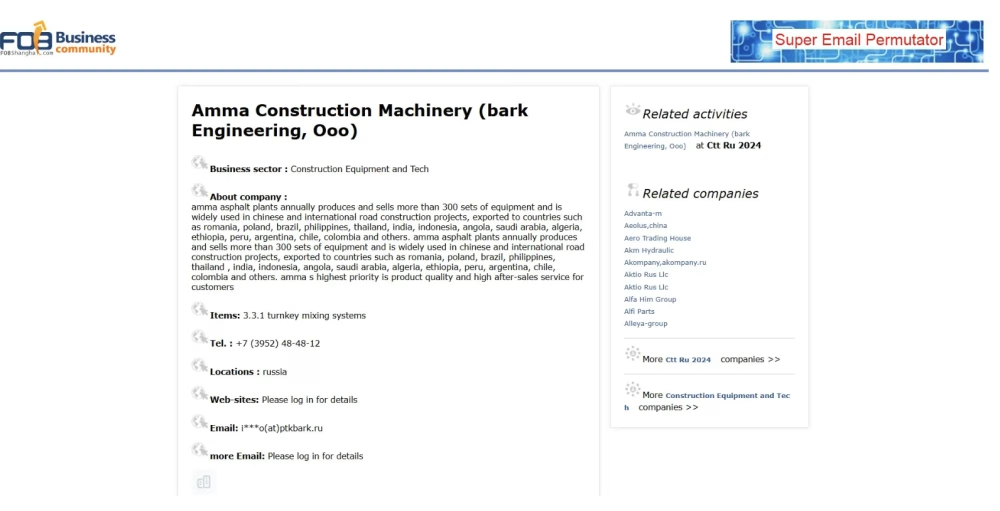
The company’s name in Chinese, based on its registration address, is 安玛工程设备(河南)有限公司. Further investigation using Tianyancha uncovered a phone number associated with the company: +86 *********13 (the full number is at the disposal of the editorial board of “Realna Gazeta”). OSINT tools revealed that this number is linked to a WeChat account registered in Zhengzhou, Henan, under the name Hengji Li, who is listed in the WireScreen database as the company’s Legal Representative. It is highly likely that Hengji Li appears in a group photo with “DPR Prime Minister” Yevgeny Solntsev.
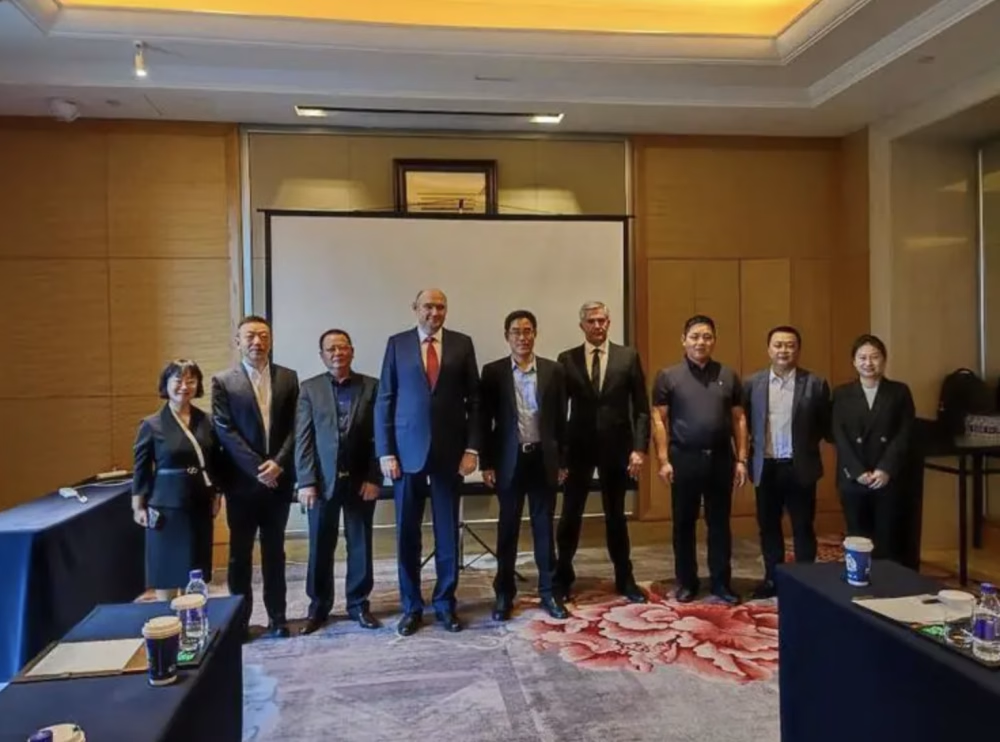
Zhongxin Heavy Industry Machinery Co. Ltd (中鑫重工机械有限公司).
The second company, Zhongxin Heavy Industry Machinery Co. Ltd, is also based in Henan Province. According to WireScreen, the company is headed by Liu Chenxia (刘晨), who may also be present in the same group photo with Solntsev. Zhongxin Heavy Industry specialises in crushing and screening equipment, manufacturing products such as cone crushers, jaw crushers, impact crushers, and sand washers.
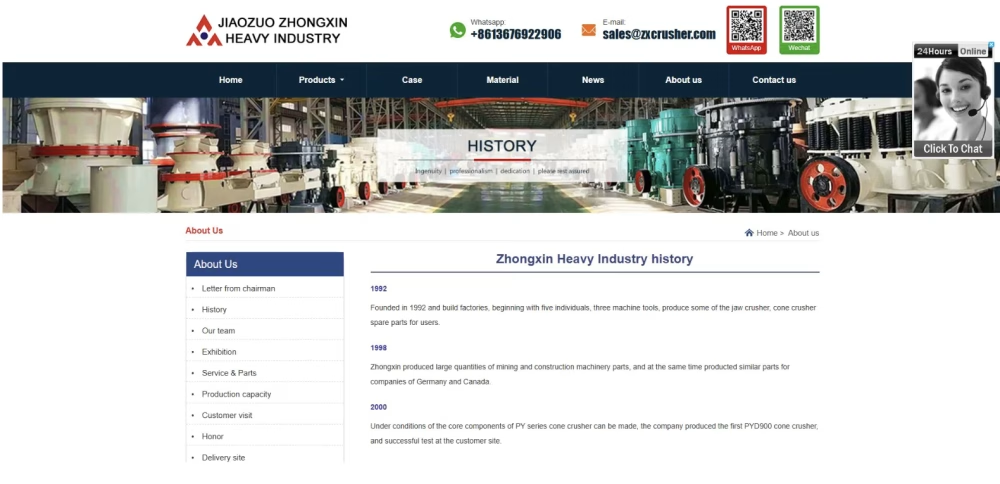
The company’s website and social media platforms highlight its successful business dealings with Russia.
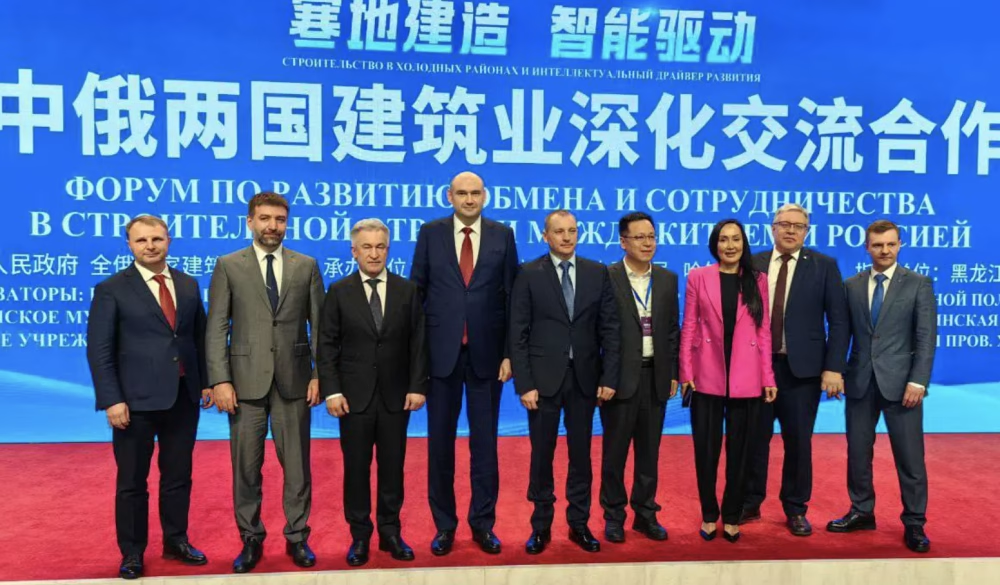
The following video reports posted on platforms like Bilibili show equipment that closely resembles machinery documented at Karan Quarry.
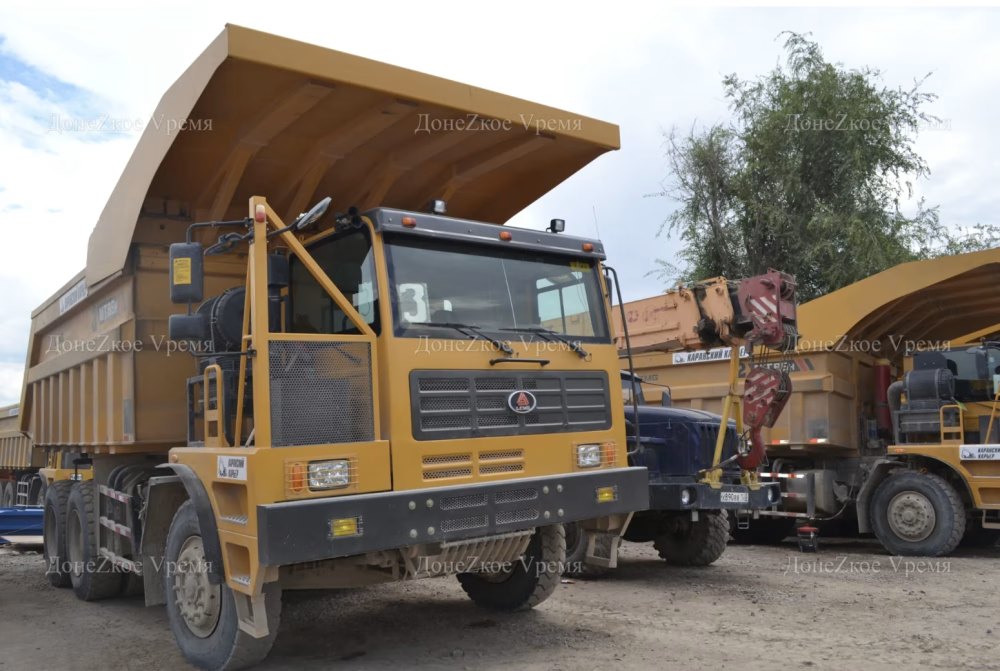
Documents reviewed by Realna Gazeta reveal a significant shipment of crushing equipment from Zhongxin Heavy Industry Machinery Co. Ltd to Russia on May 11, 2023, intended for the Kamensk crushed stone plant in the Rostov region (Shipments search results 2. csv).
Since Russia’s Rostov region borders the occupied Donetsk region, it is likely that some of this equipment was transported to the Karan quarry near Mariupol. The shipment specifically included crushing equipment, and the DPR ceremonially opened a crushing plant at the quarry in early 2024.

Additionally, import data from Russia indicates a batch of construction equipment from Amma Construction Machinery Co. Ltd was delivered to Russia in December 2023. This timeline aligns with the expansion of industrial facilities at the Karan quarry.
A guy from a cotton plantation
Why did firms from Henan Province become key partners in the industrial complex at the Karan Quarry—a vital component of the “big construction” project in occupied Mariupol? The answer lies with intermediaries who helped the occupiers forge connections with China.
On March 18, 2023, the so-called “DPR Prime Minister,” Yevgeny Solntsev, held a meeting with representatives of the “Russian-Chinese Center for Humanitarian Cooperation”. Solntsev shared fragments of the meeting on his Telegram channel:
“For us, it is very important that Chinese businesses and state-owned companies enter our territory,” Solntsev said. “This is, of course, a help for us. We are ready to provide a pool of enterprises we consider most important…”
From the Chinese side, Zhang Jingwei, head of the Russian-Chinese Center for Humanitarian Cooperation, responded:
“We would also consider sister cities. For these projects, we can establish technology parks, collaborate with universities, and attract investments across various fields.”
Who is Zhang Jingwei? Zhang Jingwei is a mathematician originally from Shenqiu, Henan Province, where Zhongxin Heavy Industry Machinery Co., Ltd and Amma Construction Machinery Co., Ltd—the companies partnering with Karan Quarry—are based. In a podcast produced by the Russian “Presidential Foundation for Cultural Initiatives,” Jingwei is described as a “Russian mathematician from China.” The episode, titled How a Guy from a Cotton Plantation in Henan Province Won the ‘Leaders of Russia’ Competition, features Jingwei posing with Russian Foreign Minister Sergei Lavrov.
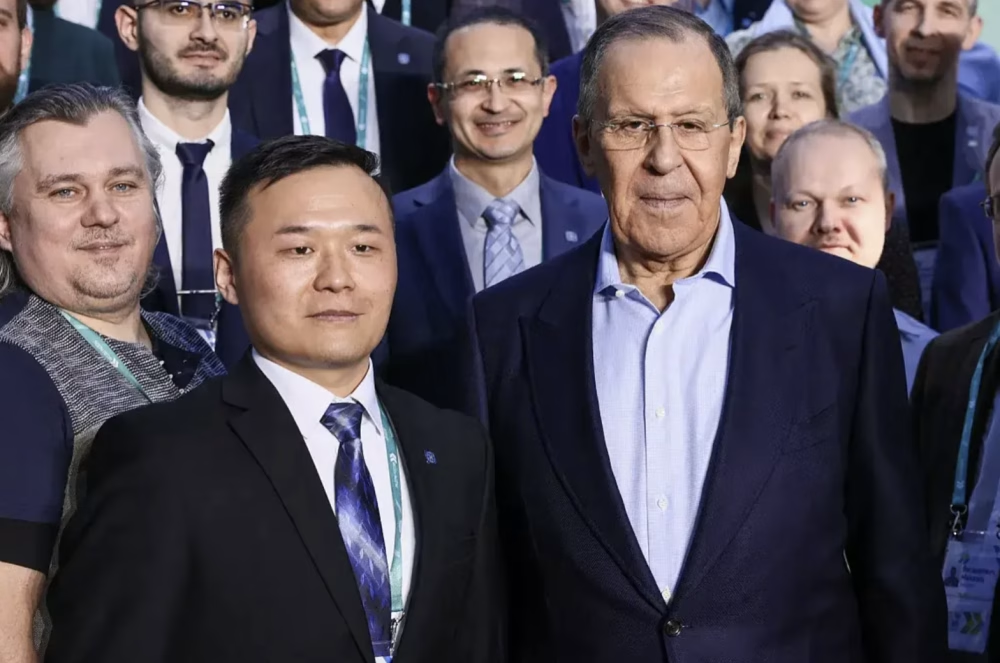
Zhang Jingwei is a former student and current postgraduate student at the Southern Federal University (SFedU) in Rostov-on-Don. At the same time, the enterprising student created a company to send Chinese students to Russian universities. On the basis of this company, he opened a language school and even intended to “create a single platform in the South of Russia that would unite the Chinese into a diaspora.” In the podcast, Jingwei fantasized about wanting to create his own “city within a city” in Rostov, a Chinatown with Chinese restaurants, branches of Chinese universities, and a technology park, where he intends to “invite Chinese officials and businessmen to do joint projects in the South of Russia”:
“I tell my Chinese, whom I supervise: “We are now standing at the car of history. Previously, such cars passed by, now it has stopped in front of us. And we have no choice but to get in it and drive forward,” Zhang Jingwei said during the podcast.
Jingwei’s “car of history” eventually brought him to Russian-occupied territories in Ukraine. Beyond facilitating business deals for Solntsev with Chinese companies, as the head of the Russian-Chinese Center for Humanitarian Cooperation. Moreover, “the guy form the cotton plantation” has actively contributed to Russia’s military-industrial complex as a researcher.
In August 2023, Russian media lauded his work:
“A postgraduate student from SFedU in China has developed an improved neural network for rapidly detecting targets using drones”.
Jingwei’s breakthrough, called the L-YOLO algorithm, was described as a lightweight yet highly effective method for detecting small targets with drones. It improved upon the popular YOLOv5 algorithm by reducing computational costs by 42.42% and the number of parameters by 48.6%, while maintaining high detection accuracy.
“The L-YOLO algorithm not only excels at detecting small targets, but it also offers a more efficient, lightweight model,” Jingwei explained. His research involved collaboration with Beijing University of Science and Technology and Henan Vocational University of Light Industry, both of which are partners of SFedU.
Jingwei’s dual role as a business facilitator and military researcher exemplifies the intertwining of commercial and strategic interests. His work not only helped secure Chinese investments for industrial projects in occupied territories but also advanced technologies that bolster Russia’s drone capabilities.
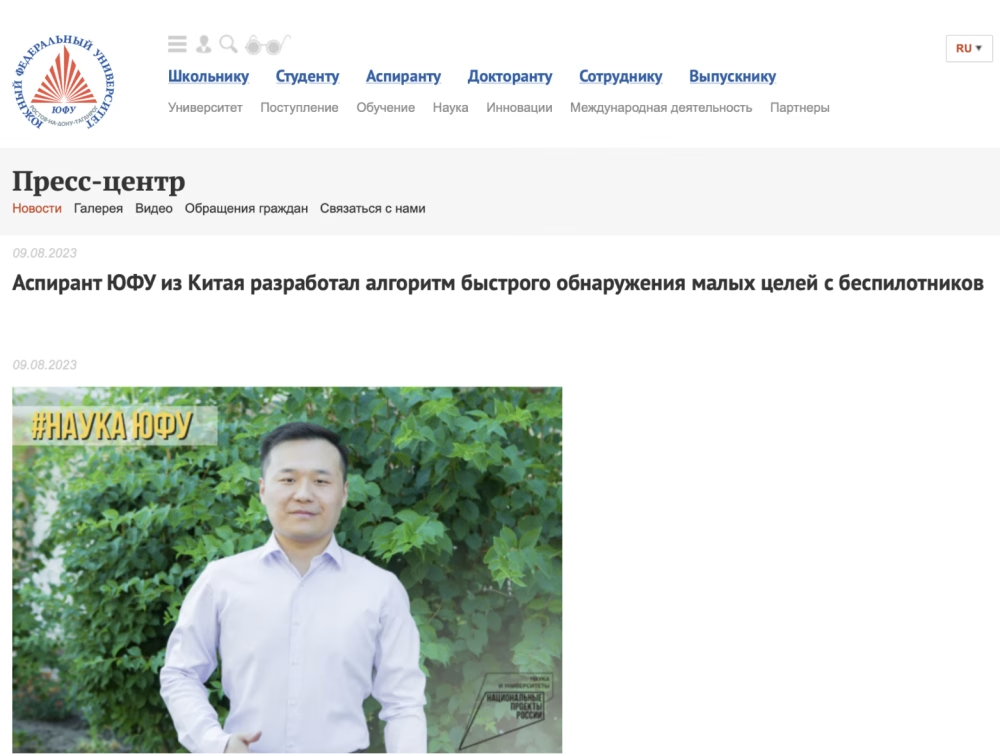
In the context of modern geopolitics, where unmanned aviation plays a critical role, Zhang Jingwei has become a key figure, bridging Chinese business interests with Russian ambitions in the occupied Ukraine.
Kiriyenko’s pupils
A closer look at Yevgeny Solntsev, the “DPR Prime Minister” and a key figure managing the occupation administration’s relations with China, reveals a career shaped by high-level Russian training programmes.
Before taking his current role, Solntsev—a politician and entrepreneur originally from Voronezh—held positions in various Russian construction organisations. His official biography highlights his participation in the “managerial personnel reserve” programme at the Higher School of Public Administration (HSPA), often referred to as the “school of governors.” This institution, overseen by Sergei Kiriyenko, the First Deputy Head of the Presidential Administration of the Russian Federation, serves as a recruitment ground for future leaders.
Kiriyenko, who also chairs the supervisory board of the “Leaders of Russia” competition, uses these schools and contests to identify and groom personnel for both formal and informal roles within Russian governance. Notably, the “Leaders of Russia” programme was the springboard for the career of Zhang Jingwei, the “boy from the cotton plantation,” who now serves as a scientist and mediator for Chinese-Russian business collaborations in the occupied Ukraine.
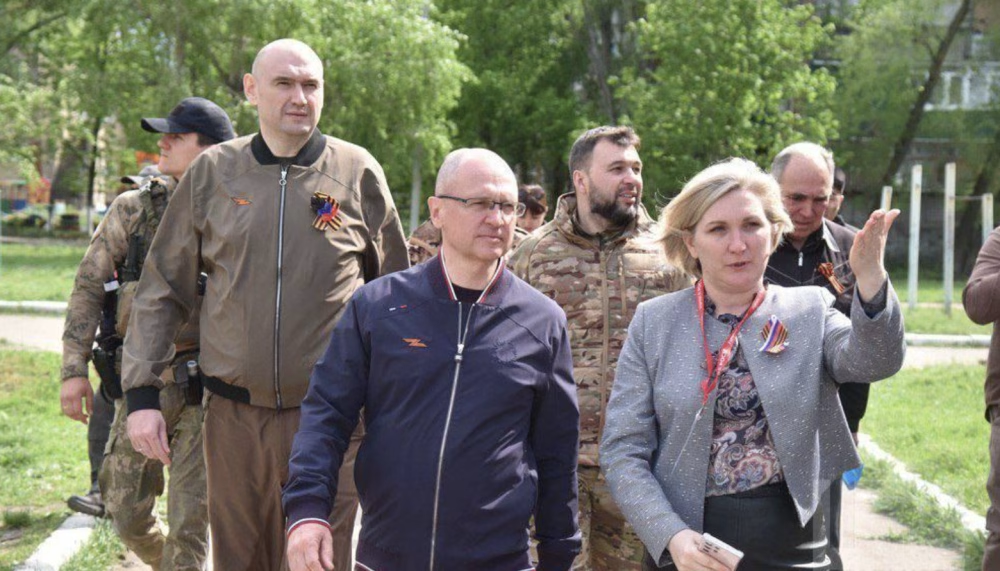
Since spring 2022, Kiriyenko’s mandate has expanded significantly, making him responsible for overseeing Russia’s occupation of Ukrainian territories. As part of this effort, his network of trained managers has been deployed to key leadership positions in these areas. Solntsev was among the first to benefit from this strategy, joining the occupation administration of the Donetsk region in the summer of 2022.
Solntsev’s promotion reflects Kiriyenko’s broader strategy of staffing the so-called “new regions” — the “DPR,” “LPR,” and occupied parts of the Zaporizhzhia and Kherson regions — with loyal graduates from the “school of governors.” And Solntsev`s efforts to attract Chinese investment to the occupied Donetsk region signal that this work is not only a priority but also a key pillar of Russia’s plans for economic integration and exploitation of the region.
“100% State-Owned”
The involvement of two private Chinese companies in the infrastructure projects of the so-called “DPR” seems to have only emboldened Yevgeny Solntsev. By 2024, this Russian “effective manager” sought to attract state-owned Chinese enterprises to the occupied Donetsk region.
In April 2024, Solntsev attended the Russian-Chinese Construction Forum in Harbin, China, where he showcased the “investment potential of the DPR” to senior representatives of the Wuhan Design and Research Institute of Ferrous Metallurgy.
“We discussed with colleagues the possibilities of launching and modernising our metallurgical enterprises,” Solntsev announced on his Telegram channel. “We also outlined options for cooperation with two Chinese companies, Genertec International Co., Ltd. and China Xinxing Group Co., Ltd., which specialise in constructing high-rise buildings, business centres, social institutions, highways, and bridges.”
A deeper investigation by Realna Gazeta reveals critical details about these companies.
Genertec International Co., Ltd. focuses on foreign trade in mechanical engineering and electronics, including the import of technologies and equipment.
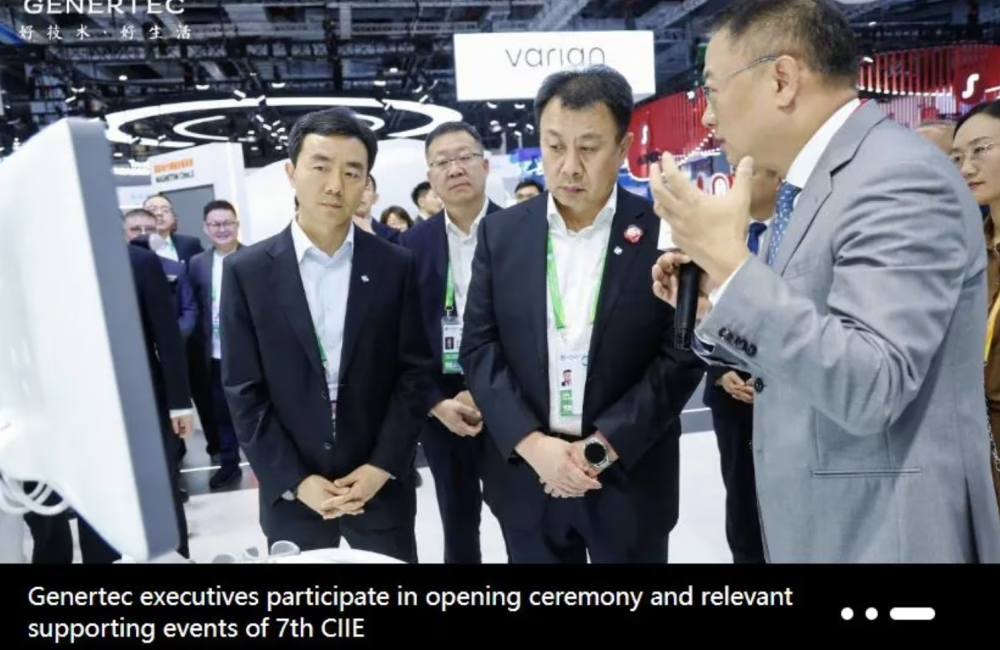
China Xinxing Group Co., Ltd. offers a broad range of infrastructure construction services, including road design, public infrastructure, architectural projects, real estate development, trade, and logistics.
But most importantly, both companies are subsidiaries of China General Technology (Group) Holding Co., Ltd., a 100% state-owned corporation directly controlled by the Chinese government.
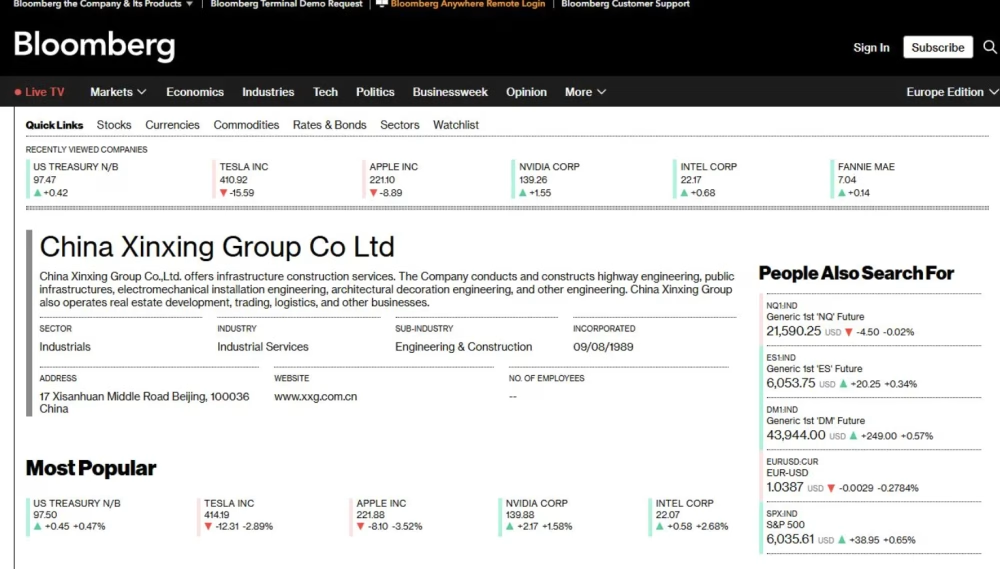
China General Technology (Group) Holding Co., Ltd. is a giant state-owned corporation, 100% of whose shares belong to the government of the People’s Republic of China. As of 2021, they reported assets totalling $34.5 billion and a workforce of over 52,000 employees. Subsidiaries of China General Technology Group design and build industrial enterprises and industrial parks, solar, wind, gas and coal power plants, railways and highways, port facilities, as well as sports and military facilities. For example, corporations associated with China General Technology Group built facilities for the Beijing Olympics.
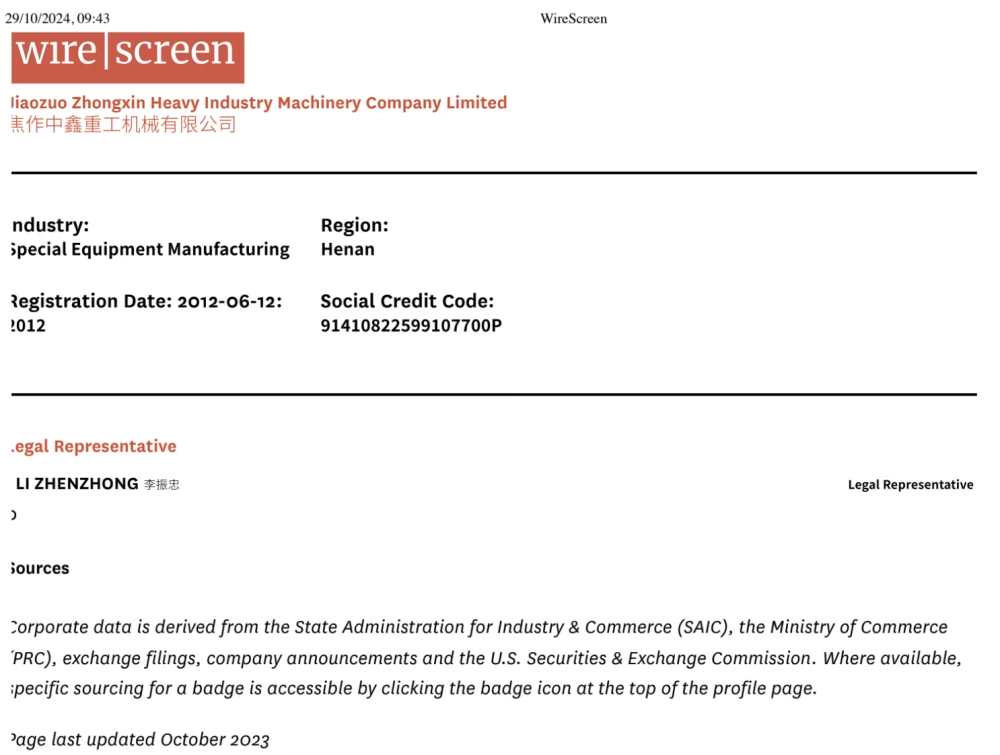
Solntsev’s ambitions are not unique to the Donetsk region. According to Realna Gazeta’s sources in the so-called “LNR,” the Luhansk occupation authorities are also actively seeking Chinese investment. They reportedly conducted meetings with potential Chinese investors during the St. Petersburg Economic Forum in June 2024.
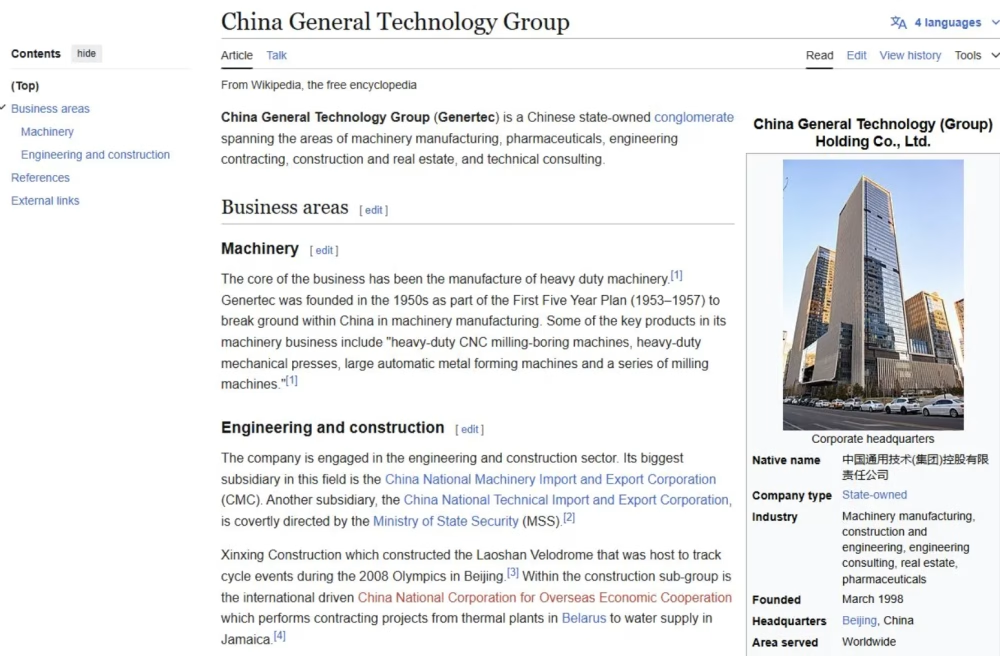
How will official China and Ukrainian allies react?
It is notable that China’s interactions with representatives of Russian occupation administrations in Ukraine’s occupied territories have so far failed to elicit a noticeable response from Ukrainian officials. Even the high-profile visit of Chinese singer Wang Fang to the destroyed Mariupol—alongside a controversial press conference with CPC party leader Zhou Xiaoping—was largely downplayed by Ukrainian media as a mere “whim of Chinese bloggers.”
In the summer of 2024, Ukraine’s official “Centre for National Resistance” stated that “there is no confirmation from the Chinese side about intentions to invest in the temporarily occupied Luhansk region.”
However, Chinese investments in factory construction around the Karan quarry near occupied Mariupol facilitated through contracts between the `DPR` and two companies from Henan Province—Zhongxin Heavy Industry Machinery Co., Ltd. and Amma Construction Machinery Co., Ltd.—are, according to our investigation, a proven fact. This raises critical questions, especially given China’s political framework. As a communist state, it is highly unlikely that such activities could occur without at least tacit approval from Beijing. China’s foreign policy is tightly controlled, and the involvement of Chinese firms in such projects appears inconsistent with its self-styled image as a “global peacekeeper” in the Russian-Ukrainian war.
Can a peacekeeper and impartial mediator conduct business ventures in territories of an independent state under military occupation?
According to Una Alexandra Berzina-Cherenkova, head of the Center for China Studies at Riga Stradins University, with whom we consulted while preparing this investigation, China carefully navigates its support for Russia to avoid triggering Western sanctions.
According to the expert, the Chinese support Russia to such an extent that it does not cross the line, beyond which they will be actively subjected to international sanctions. And sanctions have a deterrent effect. However, the researcher believes that after the story about Chinese business in the occupied Donetsk region becomes known, the Chinese government will deny everything:
“Of course, China’s approach will be, just like in the hybrid operations in the Baltic Sea with the Chinese company ships. They will say: this has nothing to do with the government! … And I think that they will make that argument, that this is us [China] actually helping, you know, these depleted territories too… But in any case, this investigation and the results that you come up with definitely will make an impact and are definitely… a new threshold. It’s a new level of China’s involvement, something that we haven’t seen before, and in that, it is very indicative of China’s position.”
Former Ukrainian Foreign Minister, and head of the Russian Studies Centre, Volodymyr Ogryzko, also believes that private companies in China cannot act autonomously from the government:
“China is a totalitarian centralised system, and I think even thinking about such things there is impossible without appropriate permits. It should be noted that China, as a country, unequivocally stands on the side of the Russian aggressor, helping this aggressor obtain what it needs from around the world for its armaments. China buys oil from Russia. At least it did so before the very severe sanctions from the previous Biden administration. China is an ideological ally of Russia. Therefore, to think that it would allow someone to do something without sanctions, I think is simply unrealistic.”
The editorial board of “Realna Gazeta” hopes to see a reaction from state structures to our investigation. We also believe that at least two Chinese companies, Zhongxin Heavy Industry Machinery Co., Ltd. and Amma Construction Machinery Co. Ltd., should become targets of international sanctions. Otherwise, due to impunity and indifference, the future involvement in “investment projects” in occupied territories will only be a matter of time for China’s state mega-corporations.
“Realna Gazeta” has approached Chinese companies identified in our investigation for comments and has also contacted Zhang Jinqwei with inquiries, awaiting responses.
We would like to express our gratitude to the Organized Crime and Corruption Reporting Project (OCCRP) for their assistance in conducting this investigation.
The English version of this article is provided by the author. For the original Ukrainian version, please visit the real gazeta website.
Tags: china donbas donetsk oblast investigation luhansk oblast Russia russia ukraine war Ukraine war
